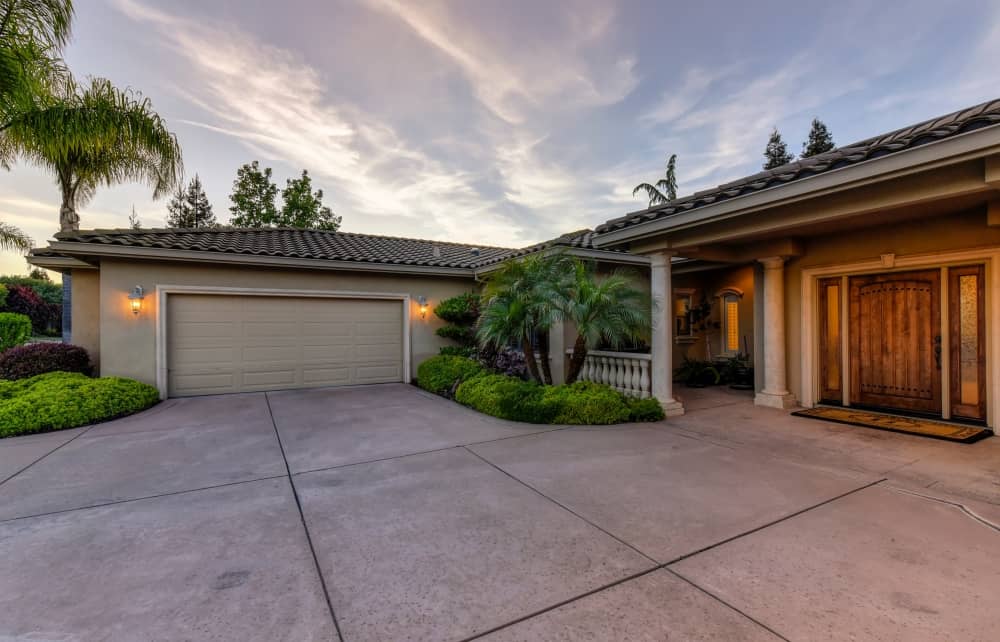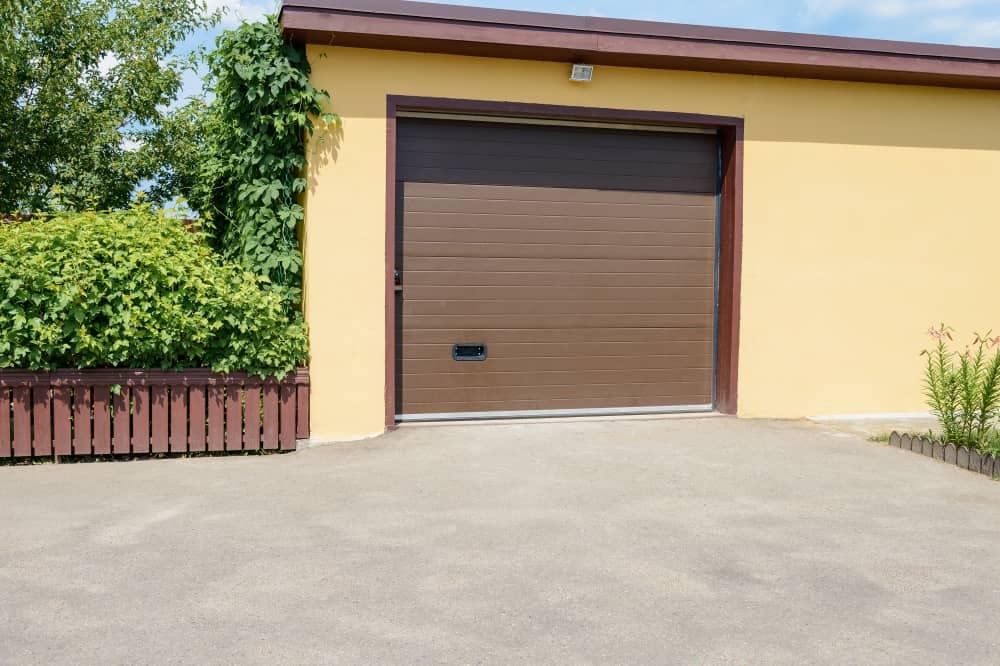A Complete Guide on How to Seal a Concrete Driveway
- October 17, 2022
- Written By Brad Russell
- Guides
Whether you’ll have a new concrete driveway poured or already enjoying its perks for a while, you must protect your investment. That’s what concrete sealing is for. With a good sealer, your driveway will continue to look great, not just for the next couple of months but for many years to come. If you have an existing concrete driveway, a sealer will rejuvenate the surface, so it does not look old and worn out.
Do You Have to Seal Concrete Driveway?
Concrete sealing your driveway is like waxing your car or even wearing sunscreen for skin protection against sun damage. Sealers are liquid compounds applied on top of the hardened concrete surface. The goal of the process is to prevent elements and solutions, such as carbon dioxide, water, acids, and de-icing blends, from penetrating the concrete.
But the question is, “Do you have to seal concrete?” In general, a concrete sealer is not necessary. That’s because concrete functions beautifully on its own. However, a high-quality sealer can add more benefits to an already excellent concrete surface. Here are reasons why sealing a concrete driveway is necessary:
- It adds service life to a concrete surface.
- Decorative concrete will look better, thanks to the enhanced colour, gloss, and sheen.
- Sealing concrete protects your driveway, especially since it’s subjected to frequent batterings from feet and heavy vehicles.
- The surface will become sturdier and will no longer be prone to cracks.
Concrete sealing is not tricky. Most of the time, you can seal a residential driveway in less than a day. You also don’t have to be experienced or skilled to do the work. However, if you want a better result, hire a qualified concrete installer.
But What Type of Sealer Do You Need?
Before you learn how to seal concrete, you should first determine the type of sealer to use, which can either be topical or penetrating. Some of the most popular topical sealers are:
- Acrylic-resin-based sealers are the most common. They are film-forming sealers often used in driveway concrete because of their several benefits without the high cost. These sealers contain a combination of silicones, polyurethanes, or epoxies for enhanced durability, water resistance, and overall performance.
- Styrene acrylic is not as good as acrylic resin since it can turn yellow and decline quickly, particularly when exposed to direct sunlight. However, it is incredibly cheap and can still last for several months with good maintenance.
- The best acrylic sealer, though, is a pure or virgin acrylic resin, which can last for a long time without degrading and yellowing, even with direct sun exposure.
- Other types include polyurethanes and epoxies. Both are expensive, especially when compared to acrylic sealers. They are high-build coatings, meaning the formulation covers the surface with thick films with a single application and will not sag or run. However, these sealers are much more slippery than acrylics.
Epoxies, polyurethanes, and penetrating resins are costlier than acrylics. They also prevent moisture vapour from escaping out of the concrete. For these reasons, acrylic-resin-based sealers are considered the top option for sealing a concrete driveway.
As for penetrating sealers, they are made of silicones, silanes, siloxanes, and other specialty resins. The name is based on their ability to penetrate the concrete, creating a chemical barrier against contaminants, such as water and oil.
Regardless of which type you choose, remember to ensure the sealer should allow concrete to “breathe” or let air and moisture pass through. If the sealer fails in this area, especially causing trapped moisture, fogging, or cloudiness can occur between the concrete surface and the sealer.
How to Seal a Concrete Driveway
Before concrete sealing, the first thing you have to do is to ensure that the driveway is clean. We get into more detail about how to do the task like a pro here.
Once the surface is thoroughly clean, wait until it is completely dry before sealing the concrete driveway. Choose the application method first, which depends on the sealer you’re using. Typically, a solvent-based sealer works best when sprayed, whilst rollers are for water-based products. Here are our tips for sealing concrete:
- Always go for maximum coverage. Whether you’re spraying or rolling to apply a sealer, make sure that you have enough to cover the whole area. Typically, one gallon or 3.80 litres of the product can cover 250-300 square feet (23-28 square metres).
- Apply a thin coat. It usually depends on the product you’re using, but the best way to avoid puddling or uneven sealing is to apply two coats as thinly as possible.
- Allow it to dry. After the first coat, wait a while until it is completely dry before you apply the second layer.
- Go in the opposite direction. On your second layer, we recommend that you apply the sealer in the opposite direction. Make sure that you have read the instructions before starting this step. Some products require application at a different angle or direction for a more even coverage whilst others are not as strict. Allow the sealer to cure before walking or driving on the concrete. You may need to wait up to three days before exposing the area to heavy traffic.
We agree that the steps above are seemingly straightforward. That’s why many homeowners decide to do the task on their own. Unfortunately, they do not get the results they want. To ensure that sealing concrete is done properly, contact us. If we worked on your concrete, we might even help you with the maintenance, so sealing will no longer be one of your worries.
Resealing a Concrete Driveway
Concrete is a strong material that can last for several years. However, your driveway will deteriorate quicker than usual when the proper sealer is not applied. In general, we recommend that you seal your concrete driveway every two to five years to preserve and protect the surface.
The amount of time between each application depends on your particular circumstances. A busy driveway that endures two or more cars every day, not to mention caustic chemicals spilling on the floor, may require more frequent sealing.
For sealing and other concrete-related services, contact Decorative Concrete WA. We have served Perth homes and businesses for many years, adding value to properties by sealing concrete driveways. Contact us today for more information.


